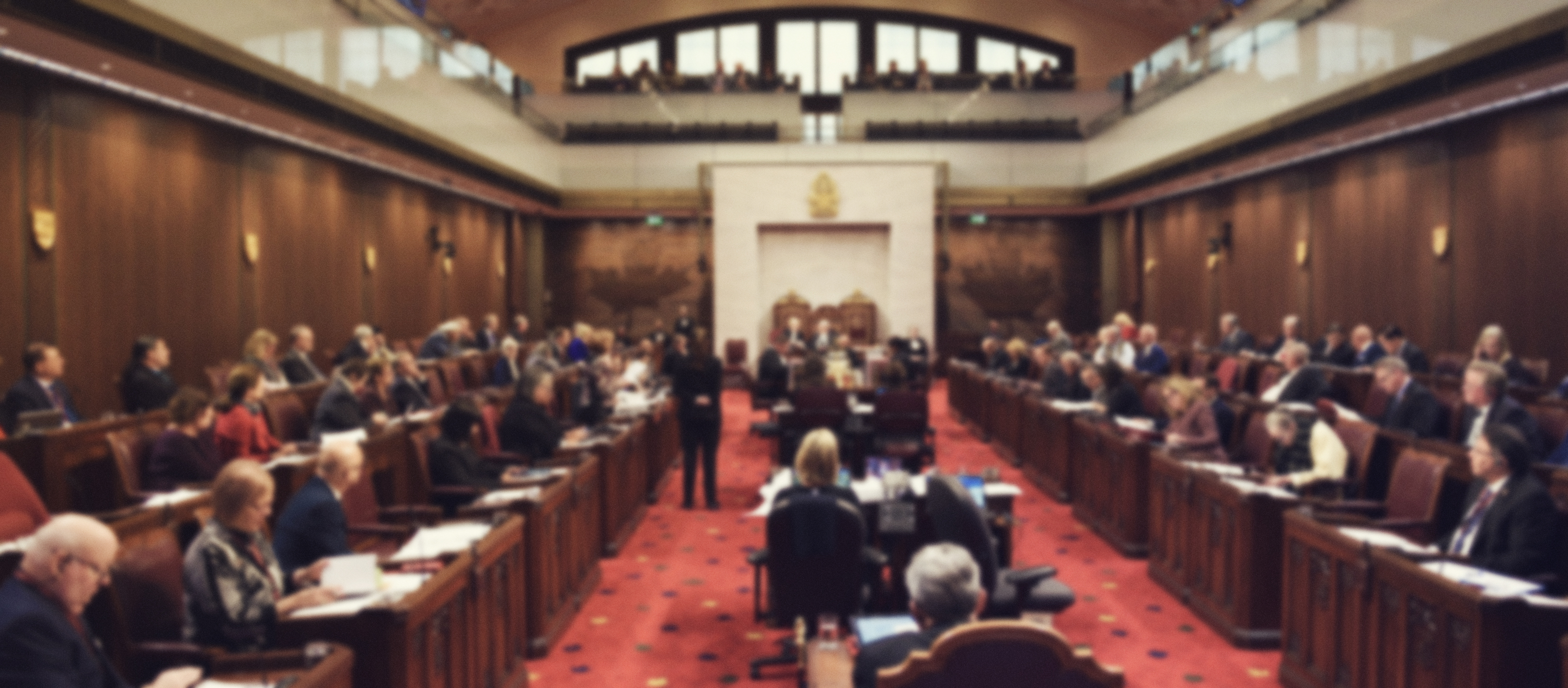Perspectives — February 19-21, 2019

Last week in the Senate: The Senate fulfilling its role of the chamber of sober second thought, seeking answers in the SNC-Lavalin affair and amending the Indian Act.

Government
The Senate convened in its new chamber for the first time last week, launching debates on two key pieces of government legislation in the former departure hall of Ottawa’s historic train station.
Bill C-75 is a comprehensive piece of legislation to reform Canada’s criminal justice system and reduce delays in criminal proceedings. The legislation includes modernizing the bail system, strengthening responses to intimate partner violence and changing the jury selection process to foster more representative juries.
Bill C-81 aims to make Canada more accessible for people with disabilities. The goal is to remove and prevent barriers, including in buildings and public spaces, job opportunities and employment policies and transportation and communication.
Debate in the chamber builds on work the Senate started earlier this month at the committee level. In-depth studies of several government bills are underway, including legislation to change the rules for the assessment of major resource projects, legislation to make it easier to designate a marine-protected area and legislation to regulate firearms in Canada.
The committee stage gives senators the opportunity to hear from a range of witnesses and, in some cases, to propose amendments to help improve legislation.
So far this session, the government has accepted Senate changes to a quarter of bills. Sober second thought in an increasingly independent Senate is clearly working in the best interest of Canadians.

Opposition
The developments in the accusations that the prime minister and his office applied pressure on the former justice minister and attorney general Jody Wilson-Raybould to intervene in a criminal investigation involving SNC-Lavalin are troubling.
Canadians need and want answers on the growing number of questions raised in this scandal.
As an independent legislative chamber, the Senate plays a crucial oversight role in monitoring how the prime minister and his office exercise their powers. As parliamentarians, senators have an obligation to protect and defend the integrity of our democratic and legal institutions.
It is for that reason that I gave notice of motion that the Senate Committee on Legal and Constitutional Affairs be authorized to examine and report on the serious and disturbing allegations that persons in the Office of the Prime Minister attempted to exert pressure on the former minister of justice and attorney general of Canada, the Hon. Jody Wilson-Raybould, and to interfere with her independence, thereby potentially undermining the integrity of the administration of justice.
This scandal has far-reaching democratic and constitutional consequences. All caucuses and groups in the Senate must demonstrate true objectivity and consider all the facts in this case. It is my hope that we can work together in a collaborative manner to ensure that an in-depth and independent parliamentary examination can take place.

Independent Senate Liberals
On January 11, 2019, the United Nations Human Rights Committee released its decision on a petition brought by Sharon McIvor and her son Jacob Grismer. The committee ruled the hierarchy that exists in the 6(1) provisions of the Indian Act is sex-based discrimination and contravenes Canada’s obligations under the International Covenant on Civil and Political Rights. The committee has given a deadline of 180 days for Canada to provide an effective remedy to the discrimination.
As those who followed the debate and study of Bill S-3 know, an effective remedy already exists in the legislation, but the relevant provisions have not yet been brought into force. The remedy contained in Bill S-3, which the Senate unanimously endorsed, not only removes the 1951 cut-off, but also remedies the hierarchy of Indian status in section 6(1).
On Tuesday, I gave notice of a motion that the Senate urge the federal government to bring into force the remaining provisions of Bill S-3, An Act to amend the Indian Act, in response to the Superior Court of Quebec decision in Descheneaux c. Canada, which would remedy the discrimination, no later than June 21, 2019.
We owe Sharon McIvor a great debt for her tireless work to right this wrong and bring it to a successful conclusion at the UN Human Rights Committee.


